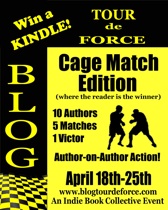A review of Freedom Writer: Virginia Foster Durr, Letters from the Civil Rights Years , edited by Patricia Sullivan.
Virginia Durr (1903-1999), a stalwart of the civil rights movement who preferred to keep out of the spotlight for personal, pragmatic and political reasons, was a hero on the grand scale, as was her husband Clifford Durr (1899 – 1975).
Having both been born and raised in Montgomery, Alabama, into reasonably prominent families, the Durrs moved as newlyweds to Washington DC, where Clifford, a lawyer, worked in the FDR administration during the heady days of the New Deal. Virginia, in addition to giving birth to and raising five children, one of whom died in infancy, became active in progressive politics. The Durr family lived near the capital city for nearly twenty years, and then, for reasons that reflect well on both of them[1], they returned to Montgomery, where, at great personal cost, over the next twenty five years they became two of the most prominent white activists for the rights of African Americans. The more one learns about this remarkable couple, the more their courage and unshakable decency leave one awestruck.
Through all those years in Montgomery, as Virginia became sucked up in the vortex of the epochal changes in social relations in the South, she wrote letters. Some of her letters were to famous people she knew quite well (Eleanor Roosevelt, Lyndon Johnson, Hugo Black, Jessica Mitford); others were to people you’ve probably never heard of. Her letters were by turns hysterically funny, profound, amazingly politically astute, eloquent, angry, or philosophical, but they were always passionate and always written in as distinctive a literary voice as you’re likely to encounter anywhere. They are marvels of English expository writing.
Freedom Writer, published in 2003, includes about 100 of such letters, presented in chronological order, grouped into four sections corresponding to periods in the civil rights movement. Patricia Sullivan (whose book Lift Every Voice, a history of the NAACP I reviewed here) edited the book. She provides a 26 page biographical introduction and introductions (of four or five pages each) to each of the four sections, in which she explains the wider context of the time. Sullivan also provides the occasional footnote to identify people or events referred to in the letters, and dozens of short introductions to particular letters that help the reader understand the context that the letter’s recipient would have. There is a short epilogue.
Virginia Durr was a remarkable and historically important woman, and Freedom Writer is a magnificent book. I cannot recommend it highly enough. You should buy a copy and read it right now.
Continue reading




